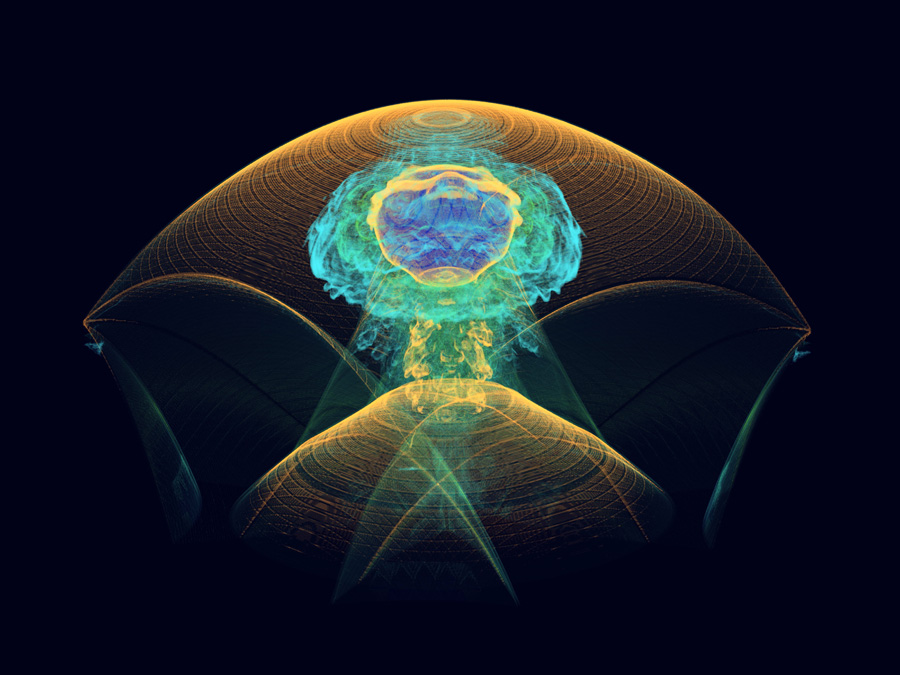Nikolaus Adams and Thorsten Bach honored with ERC Advanced Grant
Highly-endowed EU research prize goes to two TUM scientists

The European Research Council awards Advanced Grants to established scientists who have an outstanding record of success and who apply for an ambitious, pioneering and unconventional research project. The funding period spans five years. Proof of Concept funding of up to 150,000 euros is provided to ERC Grant winners who want to confirm whether their research projects will be able to produce marketable innovations.
TUM scientists have won 13 Advanced Grants since 2009. In addition, 18 ERC Starting Grants have gone to outstanding scientists (two to seven years after their Ph.D.) along with 8 Consolidator Grants (to scientists seven to twelve years after their Ph.D.) since they were introduced in 2013. Three scientists have received Proof of Concept funding.
These grants, now considered a yardstick for the quality of university research, are not the only awards in which TUM ranks among Europe's elite: TUM has received the most funding of any German university, a total of 130 million euros, out of the EU's 7th Framework Programme for Research (2007 – 2013).
ERC Advanced Grants
Prof. Dr.-Ing. Nikolaus Adams, Chair of Aerodynamics and Fluid Mechanics, has received an ERC Advanced Grant for his project "NANOSHOCK – Manufacturing Shock Interactions for Innovative Nanoscale Processes".
The flow of liquids or gases is fundamental to most technical applications and natural phenomena. Among the most intriguing fluid dynamics events are shock waves, discontinuities in the macroscopic fluid state that can lead to extreme temperatures, pressures and concentrations of energy, which can be perceived, e.g., as supersonic boom of an aircraft or as originating from an explosion. The violence and yet the spatial localization of shockwaves presents us with a unique potential for in situ control of fluid processes with surgical precision. Applications range from kidney-stone lithotripsy and drug delivery to advanced aircraft design.
How can this potential be leveraged/harnessed? What mechanisms and inherent properties allow for formation and control of shocks in complex environments such as living organisms? How can shocks be generated in situ and targeted for drug delivery with high precision while minimizing side effects? What is the potential of reactive/fluidic-process steering by shock-interaction manufacturing?
The objective is to answer these questions by state of the art computational methods, supported by
Benchmark quality experiments. Computations are be based on advanced multi-resolution methods
for multi-physics problems. Uncertainty quantification is employed for deriving robust flow and shock-dynamic field designs. Paradigms and efficient computational tools are delivered to the scientific and engineering community.
Prof. Nikolaus Adams has been Chair of Aerodynamics and Fluid Mechanics at TUM since 2004. Adams was elected as Fellow of the American Physical Society for his work on computational flow modeling in 2011. Jointly with a team of scientists from ETH Zurich, Lawrence Livermore National Laboratories and IBM Adams received the 2013 Gordon Bell Prize for the largest and most efficient flow simulation.
Prof. Dr. Thorsten Bach, Chair for Organic Chemistry I, develops new synthetic methods in organic chemistry, focusing on catalytic, thermal and photochemical methods.
In many light-induced reactions two or more variants of the target compound can form in parallel, possessing the same composition but mirror-image structure. The formation of these so-called enantiomers reduces the possible yield and is a stumbling block to broader usage. The aim of Thorsten Bach’s project "ELICOS” (Enantioselective Light-induced Catalysis for Organic Synthesis) is, to develop new methods of synthesis in which photochemical reactions are controlled by chiral catalysts so that only the desired three-dimensional structure is produced.
Exhibiting identical chemical composition, chiral catalysts also possess a spatial structure which behave like image and mirror image. In a photochemical reaction where two enantiomers can form, a chiral catalyst should drive the reaction in the direction of one of the two products. Given that, in many cases, only one of the two forms is biologically effective, this would be of immense benefit to the synthesis of medical agents.
As photochemical reactions proceed very quickly, even in the absence of a catalyst, their use calls for new concepts that differ from those of traditional catalysis. This is another challenge that the ERC project aims to tackle.
Thorsten Bach holds the Chair for Organic Chemistry I at TUM since 2000. He is an elected member of the Bavarian Academy of Sciences and the German National Academy of Sciences, Leopoldina.
ERC Proof of Concept
Prof. Dr.-Ing. Eckehard Steinbach, Chair of Media Technology, has been awarded an ERC Proof of Concept Grant for "RoVi," a robotic manipulator with visuo-haptic sensing. The project – which aims to reduce the complexity and cost of sensory systems enabling robots to safely handle objects in factory, home, and other environments – directly links academic research with industry trends and market needs.
State-of-the-art systems typically require networks of force and position sensors to give a robot effective tactile feedback. In this alternative approach, a single video camera, coupled with smart image-processing software and efficient communications, can endow a robot with the sense of touch. "RoVi" builds on Prof. Steinbach's "ProHaptics" research program, funded during the past five years by an ERC Starting Grant.
Eckehard Steinbach holds the Chair of Media Technology at TUM since 2009. He is fellow of the IEEE.
More information:
Technical University of Munich
Corporate Communications Center
- Corporate Communications Center
- becker@zv.tum.de
- presse@tum.de
- Teamwebsite